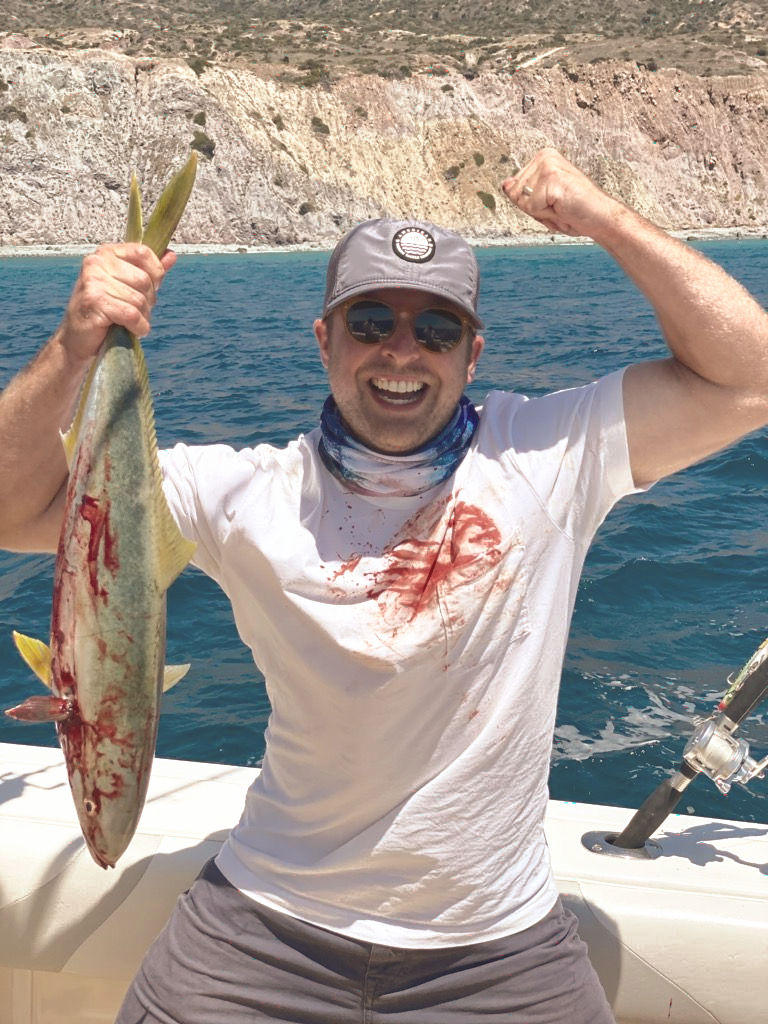A Catch, a Choice, and Why It Matters
- Van Daniel Manalo
- Aug 26, 2025
- 3 min read

artificial lures, beginner fishing gear, casual angling, casual fishing, coastal fishing, expert fishing, family fishing, fishing accessories, fishing adventure, fishing advice, fishing blog, fishing charters, fishing community, fishing experience, fishing for beginners, fishing gear reviews, fishing guide, fishing hooks, fishing industry, fishing knots, fishing lifestyle, fishing reel, fishing reviews, fishing rod, fishing safety, fishing spots, fishing stories, fishing techniques, fishing tips, fishing trips, fishing tutorial, fly fishing, freshwater fishing, how to fish, lake fishing, live bait, monofilament line, outdoor adventure, pond fishing, recreational fishing, river fishing, saltwater fishing, spinning combo, sustainable fishing, tackle box essentials
Preview: A personal reflection on what a single catch can mean for the ocean and future anglers.
That grin, the blood on the shirt, the blue horizon — that photo captures a single, human moment: the rush of a fight, the satisfaction of a catch, the mess that comes with both. But behind the smile there’s always a quieter thing happening — a mental checklist, a flicker of conscience: What now?
Fishing taught me humility. It’s easy to forget when the rod is bent and the adrenaline’s high, but we don’t own the sea; we borrow it. Every choice we make on the water — to keep, to release, to dispatch humanely, to share or to waste — ripples outwards. It affects breeding populations, the next angler’s chance at a great day, and the health of the ecosystems we love.
The weight behind a small moment
That photograph is a postcard from one afternoon, but it’s also a pause button. In the split seconds after a fish hits the deck, I run through the same decisions I always run through: Is it the right species? Is it legal to keep? Is it big enough, or a spawner? Where’s the hook? How’s the fish breathing? Can it be revived and sent back strong?
Those are practical questions, but they’re underpinned by something deeper: respect. Respect for the life I’ve taken into my hands, respect for the people who rely on healthy fisheries, and respect for the future anglers who will cast lines in the same spot years from now.
Sometimes sharing means letting go
There are days I fillet, pack, and share the catch with family and friends — food that feels earned and grounded in gratitude. Those are good days. But there are other days when the right call is to set it free, no photo needed beyond the memory. Sometimes the best thing you can do is walk away with a story instead of a cooler.
Putting a beautiful fish back doesn’t feel like loss. It feels like stewardship. It’s a small, personal act that recognizes we’re the temporary caretakers of an ocean that belonged to the waves long before any of us were born.
How respect looks in practice
Respect doesn’t require perfection. It begins with simple, repeatable habits:
Know the rules. Size limits and protected species regulations aren’t suggestions — they’re the fastest way to keep a fishery healthy.
Handle with care. Keep the fish in water when possible. Use tools, not fingers, and wet your hands before touching.
Choose humane methods. If you keep fish, dispatch quickly and respectfully, bleed and ice properly, and use what you’ve taken.
Minimize waste. Only harvest what you’ll use. Share with family, neighbors, or community if you can’t use it all.
Teach the next wave. Bring younger anglers into the conversation about ethics and sustainability. The best legacy we can leave is responsible anglers.
The community we keep with us
Fishing is personal, but it’s also communal. The choices I make on a boat affect the people who rely on fish for food and income, the guides who depend on repeat customers, and the kids who will learn the same tricks and rules from us. When we choose thoughtfully — when we favor the long game over selfish short-term gain — we strengthen the whole community.
That’s why, on any given day, I’m as proud of the times I put a fish back as I am of the meals I took home. Both choices can be right if they’re made with respect and purpose.




Comments